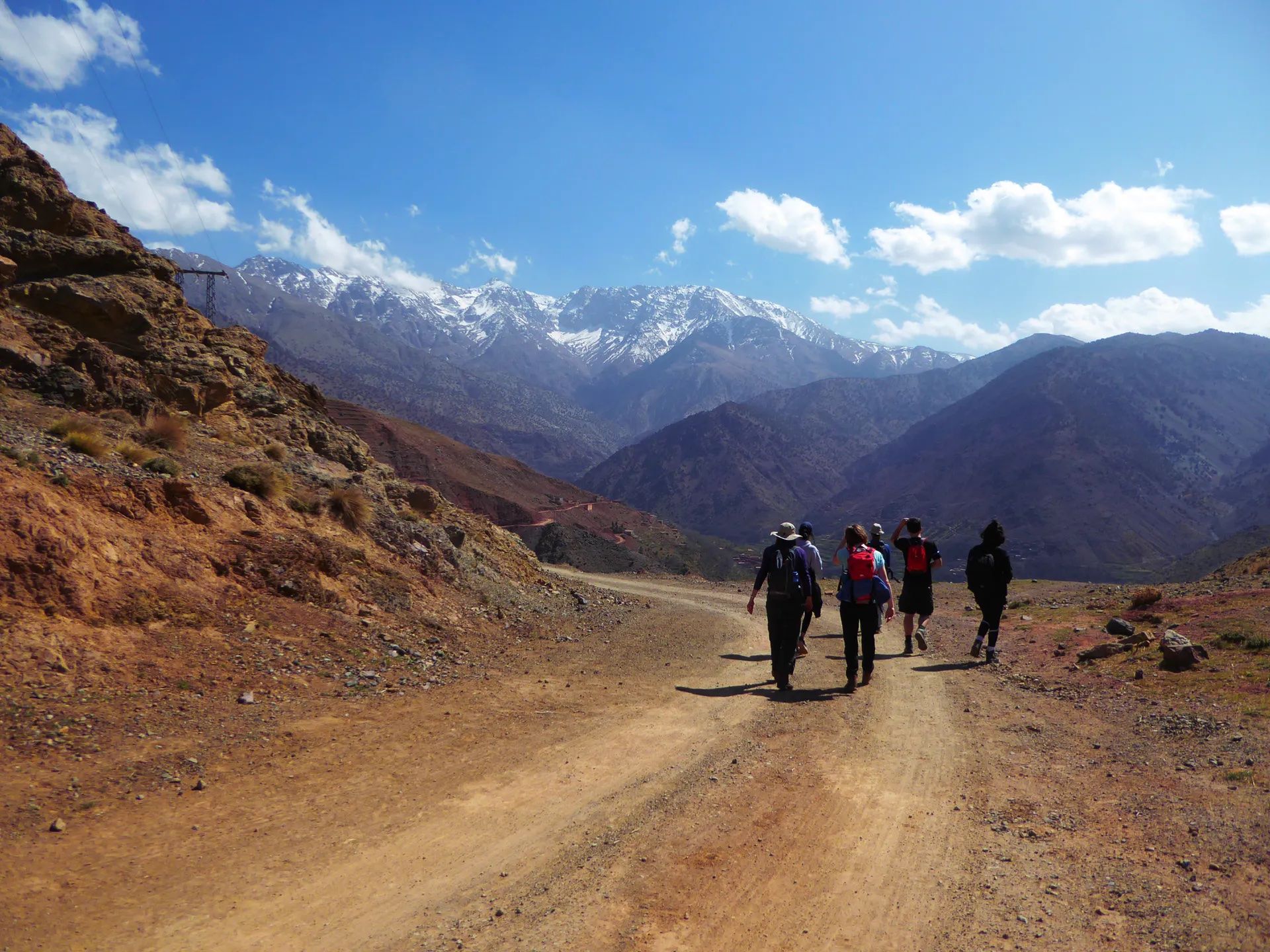
Morocco is well known for its colourful, timeworn medinas and the undulating dunes of the Sahara Desert. It is not as well known for its fantastic trekking opportunities. But there are some amazing treks in Morocco, and hundreds of mountains to climb.
The Atlas Mountains is a series of ranges that run through the country from northeast to south. The High Atlas mountains start as small hills at the edge of the Atlantic, quickly rising to sheer peaks, which includes Mount Toubkal, the highest mountain in Morocco (4,165m); then there's also The Middle Atlas and the Anti-Atlas. There are numerous routes through these mountains and the valleys and plains that surround them.
If you enjoy finding the highest mountains to climb, then look no further!
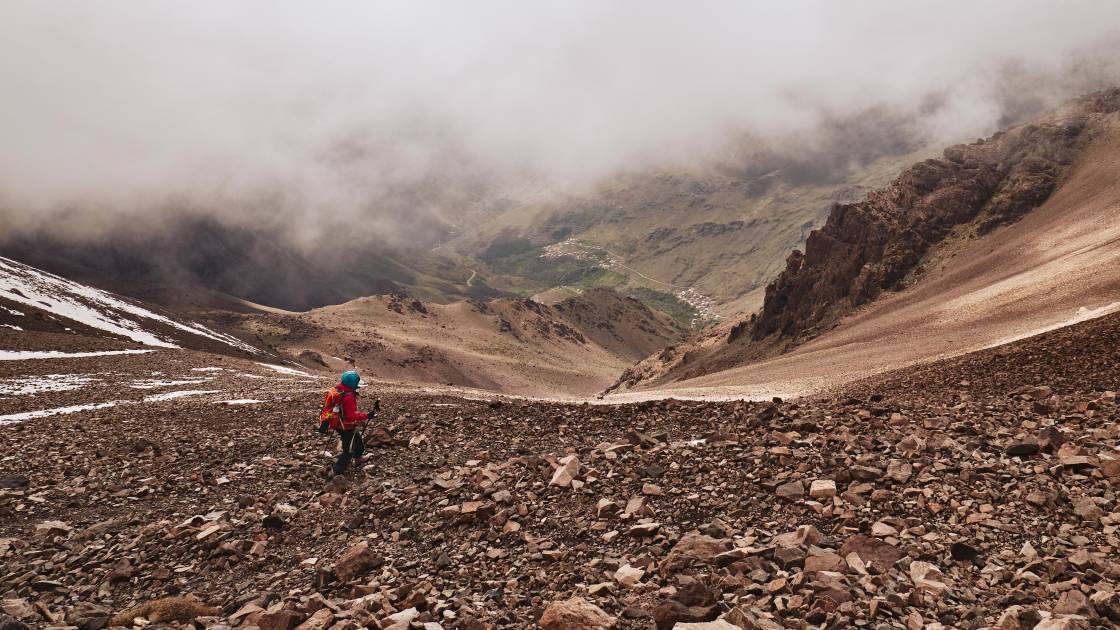
What is the Highest Mountain in Morocco?
The highest mountain in Morocco is Mount Toubkal (also known as Jbel Toubkal and Tubkal), at 4,167m/13,671ft.
After Toubkal, the next highest mountains are:
- Ouanoukrim - 4,089m/ 13,415ft
- M’Goun - 4,071m/ 13,356ft
- Afella - 4,031m/ 13,225ft
- Akioud - 4,030m/ 13,221ft
- Biquinoussene - 4,002m/ 13,129ft
- Jebel n’Tarout - 3,996m/13,110ft
All of these peaks are in the High Atlas range. However, considering that several of these have seen only a handful of ascents - and are suitable only for highly experienced climbers - we’ve hand-picked a list of soaring peaks that are perfect for trekking!
Morocco's Highest Mountains To Trek
1. Mount Toubkal
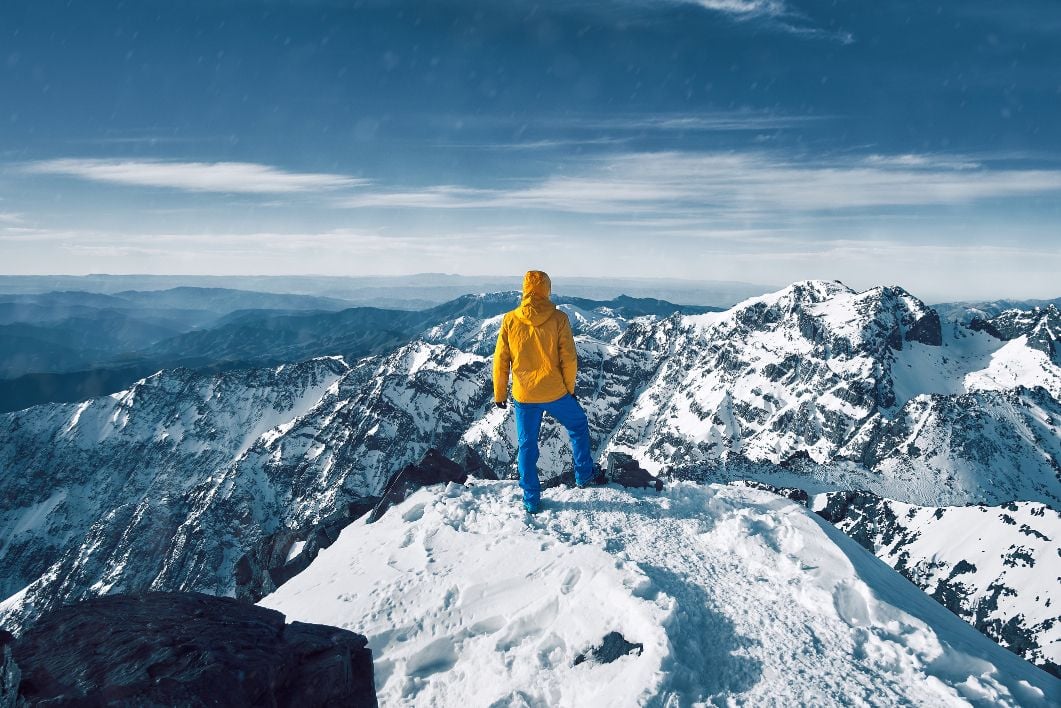
Elevation: 4167m
Towering over the Atlas Mountains, Mount Toubkal is the highest peak in Morocco, standing at 4,167 metres tall. Toubkal is the highest mountain in North Africa and as an ultra-prominent peak (over 1,500 metres) it makes for an epic summit experience.

During the winter, climbing Morocco's highest mountain is tough - you'll need crampons and other speciality equipment, as well as mountaineering experience. In the summer, fierce heat at lower altitudes might slow you down. The best time to climb Mount Toubkal is therefore from September to October or April to May.
Hikers usually base themselves in Marrakech, Morocco’s second city, which is only 63km north of the mountain. Toubkal is approached from the village of Imlil, from where optional guides and porters can be hired. Hikers start off easy, walking through the picturesque village of Aroumd, east across a floodplain to the tiny settlement of Sidi Chamarouch, before continuing up the gradual gradient to basecamp at either Neltner Refuge or Refuge du Toubkal.
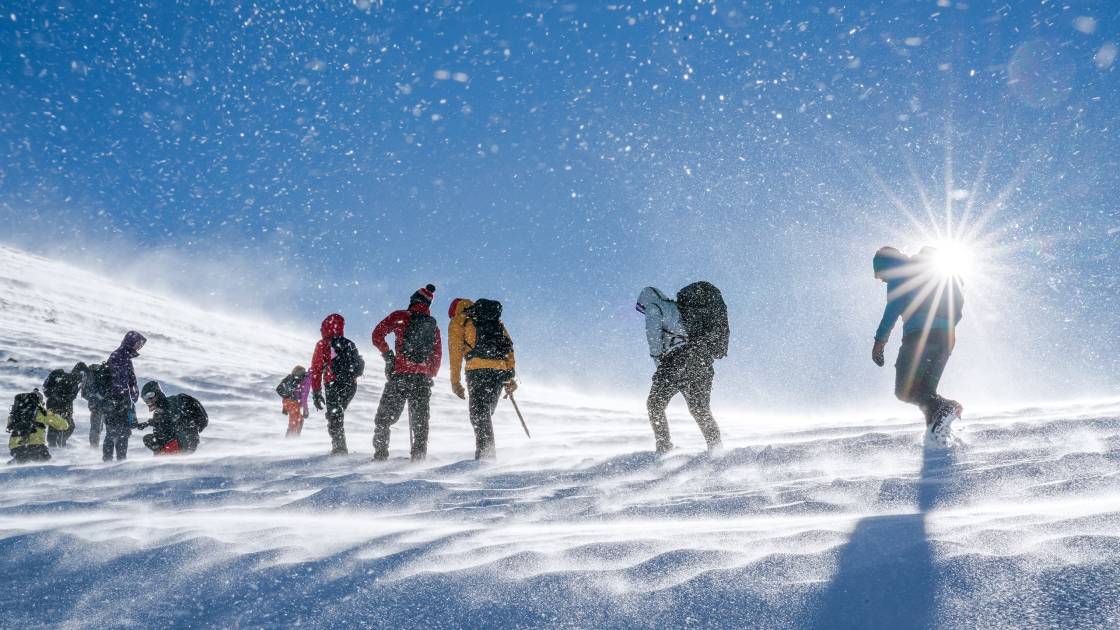
We'd recommend striking out for the summit in the very early morning - that way you can watch the sun rise over the mountain. As the rocky path continues up the mountain, the altitude drops and in winter, snow and ice fields coat the mountain, with the option to ski part way down on the descent.
2. Ouanoukrim
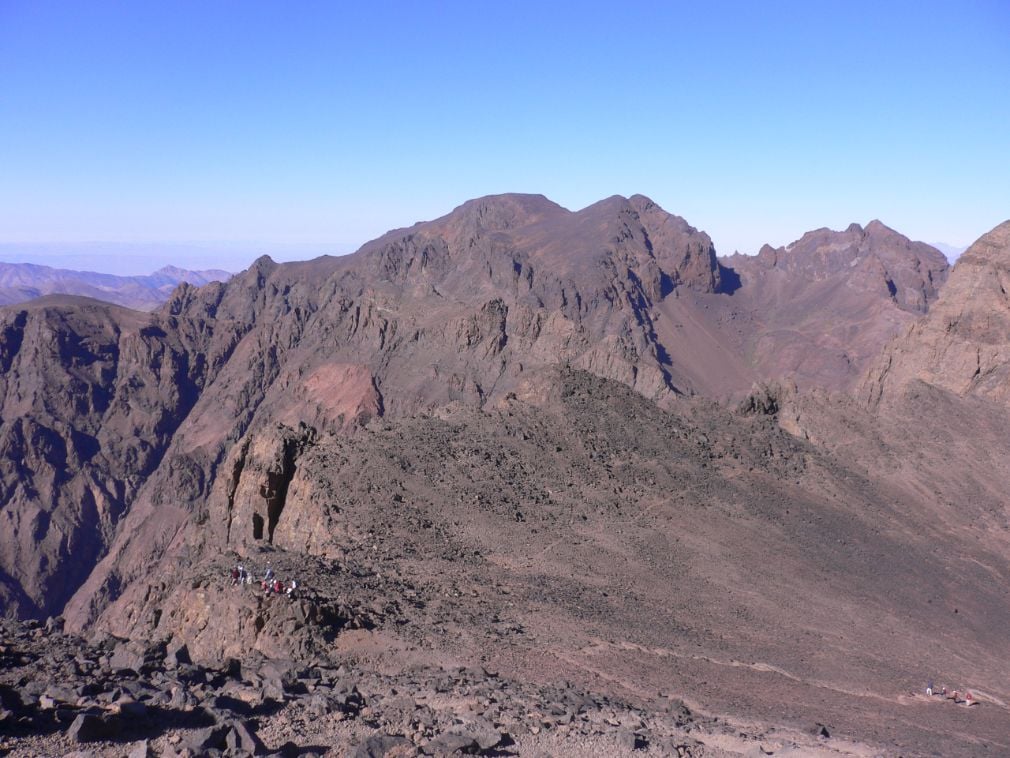
Elevation: 4,089m
This is one of the most demanding peaks to hike, with some Alpine experience recommended before attempting to scale the twin peaks of Ouanoukrim Mountain. At its highest point at 4,089 metres, the mountain spans two summits, Timzguida (4,089 metres high) and Ras Ouanoukrim (4,083 metres high) - also known as ‘Ras’.

This mountain is a seemingly endless chain of brown dust-coated crags and crevices waiting to be discovered. The views from the peaks are a field of cliffs and spectacular reflections of the sun in the steamy mists that rise up from this part of Morocco.
The most intrepid hikers can test themselves undertaking Morocco's Three Peaks Challenge, summiting Mount Toubkal followed by the two summits of Ouanoukrim.
3. M’Goun
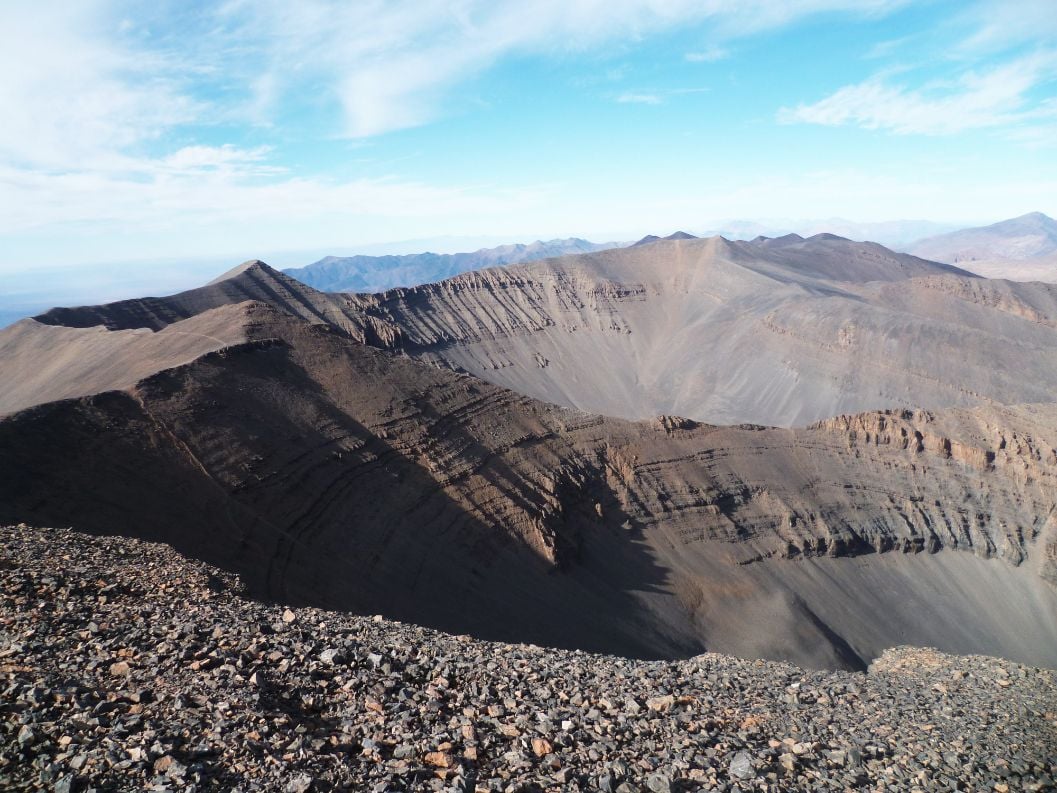
Elevation: 4,071m
The M’Goun Valley is perhaps the most popular trekking route in Morocco, and it takes around 5 days to successfully reach the peak of this High Atlas mountainous valley. Rickety wooden bridges barely support hikers as they climb over fast-flowing rivers flowing down sheer cliffs, hiking tracks are engulfed by landslides, and donkeys roam freely across the mountain ridges.
When you reach the summit, the view of the sparse, lunar-like mountain ranges stretching out on either side of you will leave a lasting impression.
4. Jebel Ouaougoulzat
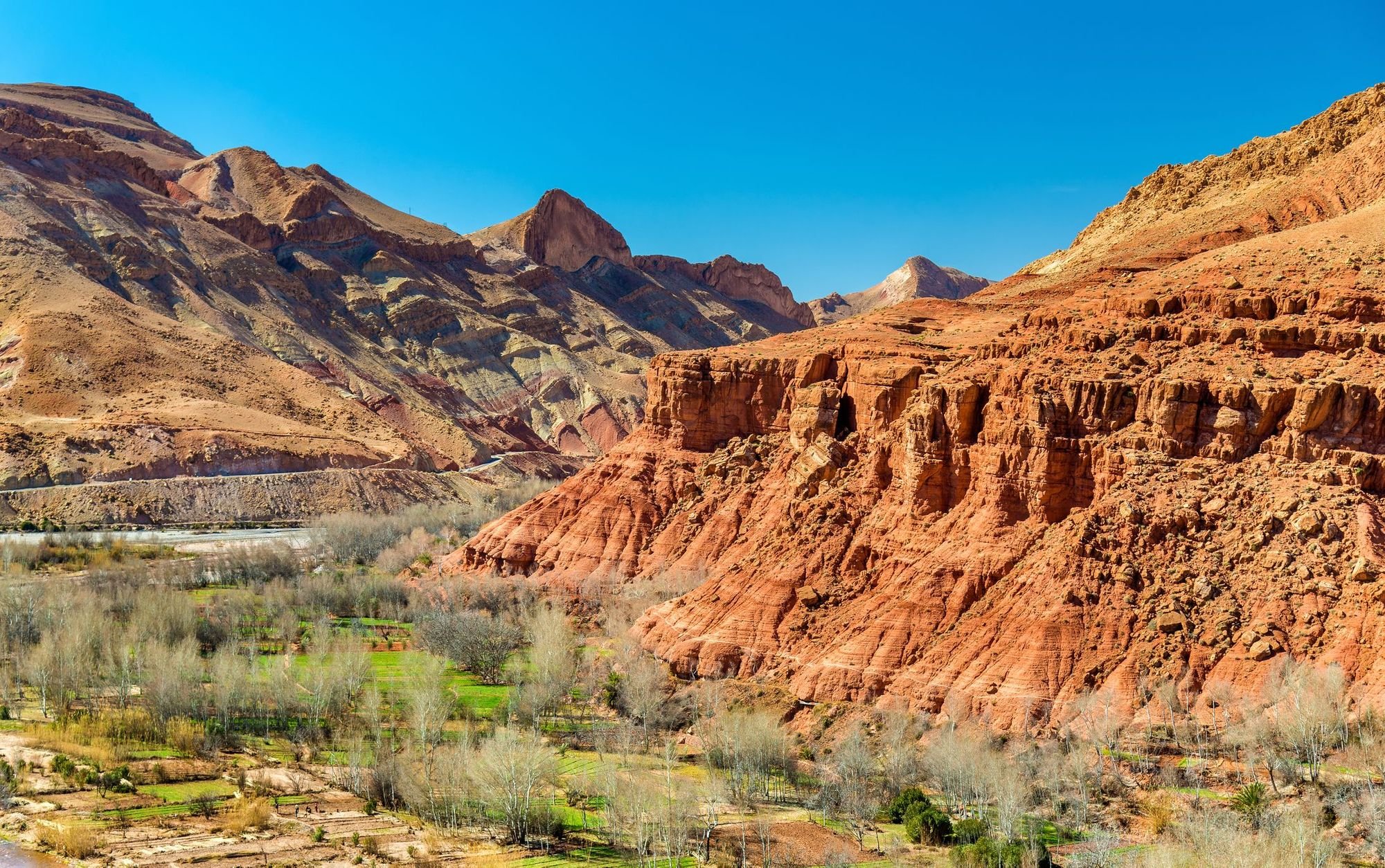
Elevation: 3,729m
Standing at 3,729 metres tall, the high peak of the Ouaougoulzat mountain is in the Mgoun Range (named after the Mgoun Mountain) and it leads to the Lac Izoughar ski slopes in the winter months. There are a number of locally-operated gites at the base of Ouaougoulzat close to the ski slopes. In the spring and summer, the reflections of the towering mountains in a lake at 2,526 metres above sea level are unforgettable.
From the base at Lac Izoughar, it takes around 5 hours to climb to the peak of the mountain, with some steep parts coated in a powdery dust. Mules and guides can be hired from Bou Guemez road in the town of Azilal at the base of Ouaougoulzat, but from here the hike is extended to two days. Wherever you choose to start this hike, the views across the triple snow-capped peaks of the Mgoun Range are unrivalled.
5. Jebel Ayachi
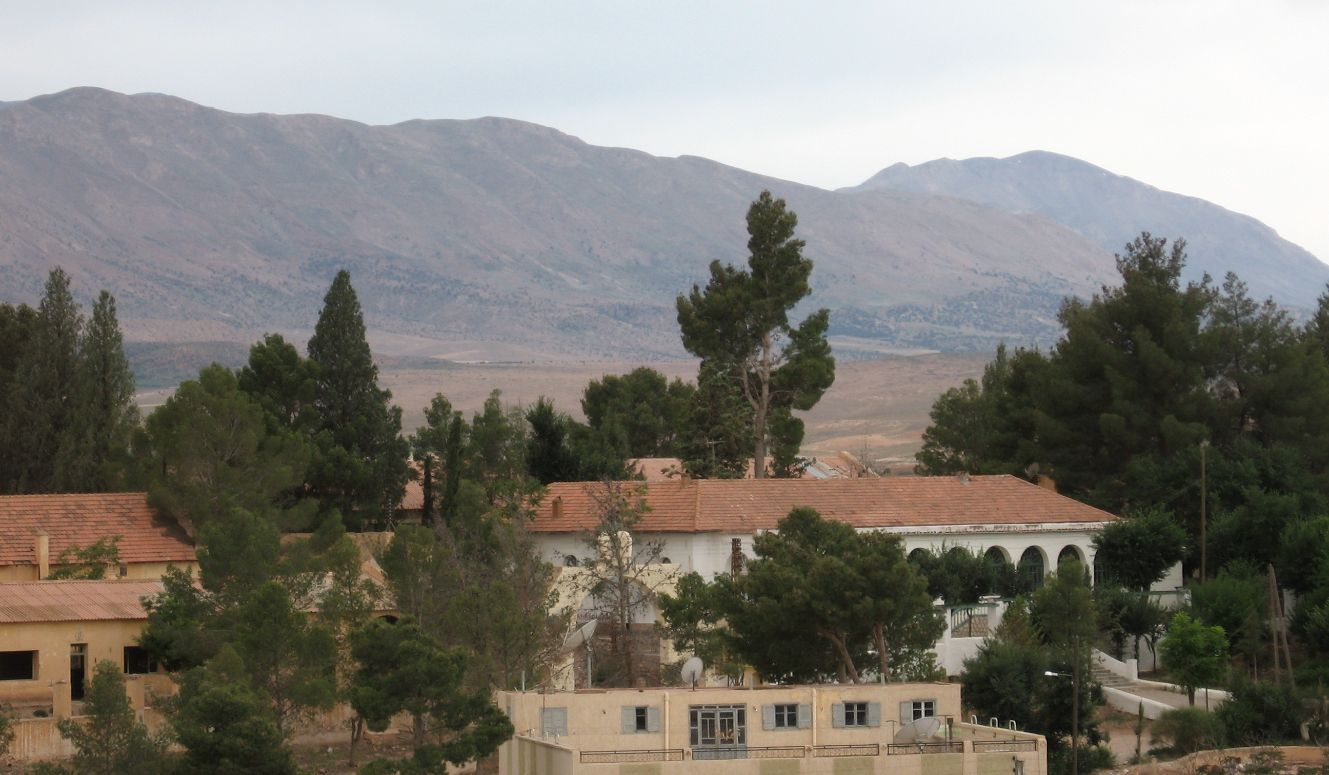
Elevation: 3,757m
One of the highest mountains in North Africa, this is the anchor mountain for the Eastern High Atlas in central Morocco. Jebel Ayachi rises to a height of 3,757 metres and is home to countless rare and magnificent birds. The mountain actually forms a ring around the town of Midelt, creating spectacular photo opportunities.
Despite being close to the Sahara Desert, the mountain peaks retain their snow coating late into the summer. Nomadic Berbers have raised livestock across Jebel Avachi for thousands of years, continuing today. There are countless ravines crossing the mountain, supplying fresh mountain water for those refreshing bathes after a strenuous hike.
6. Jebel Yagour
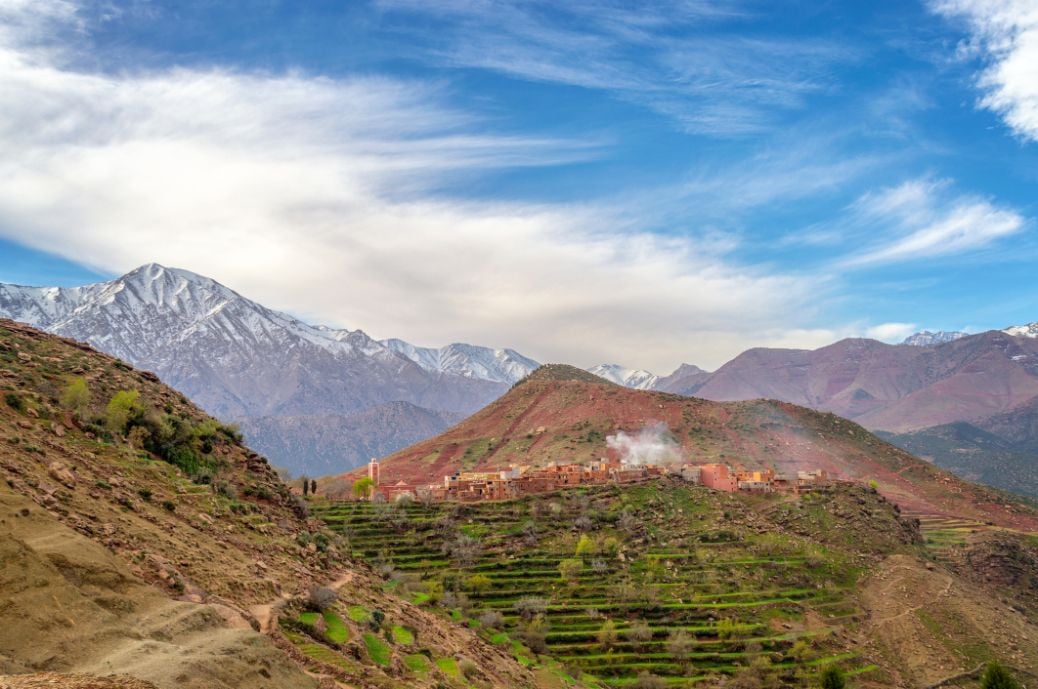
Elevation: 2700m
Jebel Yagour is in the High Atlas mountain range near Marrakech. The high plateau stands at 2,700 metres high and is surrounded by sheer cliffs and steep slopes, making this a real test of endurance for those willing to attempt the trek into the clouds above Morocco.
Not only are the natural surroundings of Jebel Yagour spectacular, with different views across the country around every turn, the mountain is also famous for hundreds of rock and cave paintings documenting the history of this region, thought to date back to 1,000 BC. documenting the history of this region.
As you follow the dusty trail from the base of the mountain, you will literally be following in the footsteps of thousands of traders trekking across the mountains to the bustling souqs in the north. As with all hikes in this part of Morocco, Marrakech is the perfect base from which to prepare.
7. Jebel Tidirhine
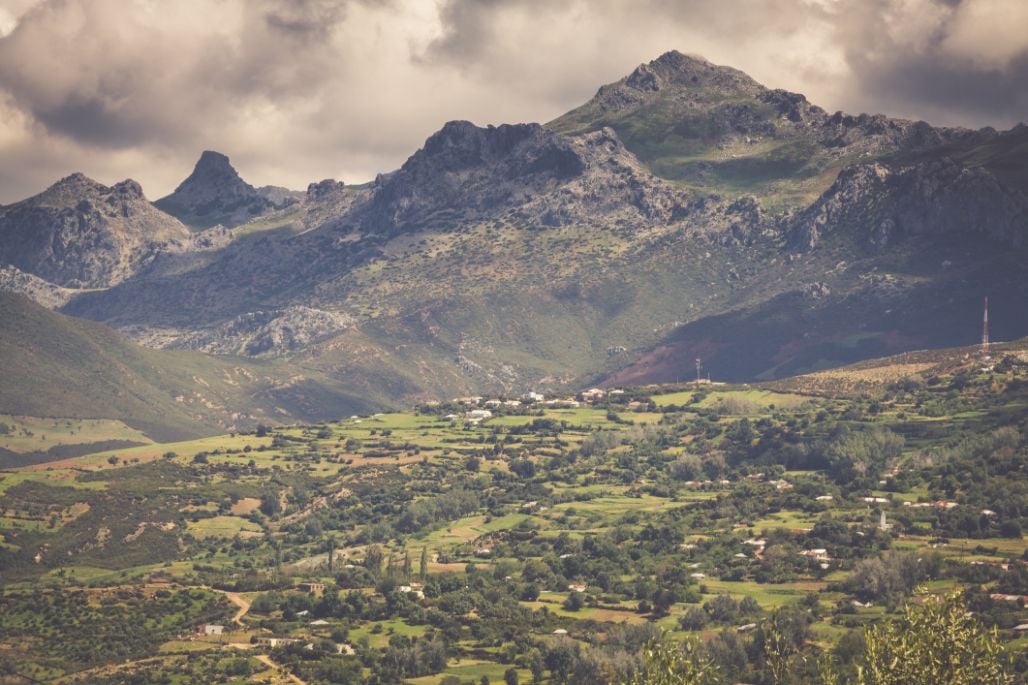
Elevation: 2,456m
Mount Tidirhine (locally known as Jbel Tidirhine) is in the Al Hoceima Province of Morocco, in Tanger-Tetouan-Al Hoceima in the north of Morocco. With an elevation of 2,456 metres high, this is the highest of the Rif mountains and home to many traditional Berber villages that have been here for centuries.
Another of Morocco’s ultra-prominent peaks, most people start their hikes up the mountain from the Moroccan capital of Rabat. As the hiking trail rises, the mountain promises views out across the Strait of Gibraltar and, on a clear day, it is possible to see the shores of Spain. This is a great entry hike for adventurers looking to experience Morocco’s peaks.
And a bonus mountain pass hike…
8. Tizi Mzik
Elevation: 2,500m
If you’re a beginner trekker, you’re unlikely to want to try your luck on one of the highest mountains of Morocco. However, there are plenty of wonderful trekking opportunities in both the Ouirgane National Park and Toubkal National Park, both of which are located in the High Atlas.
Plan a multi-day trek that takes you through the Azzaden Valley, renowned for the verdant crop terraces carved into its red sandstone mountains. After that you can cross over into the Toubkal National Park and into the Ait Mizan Valley.
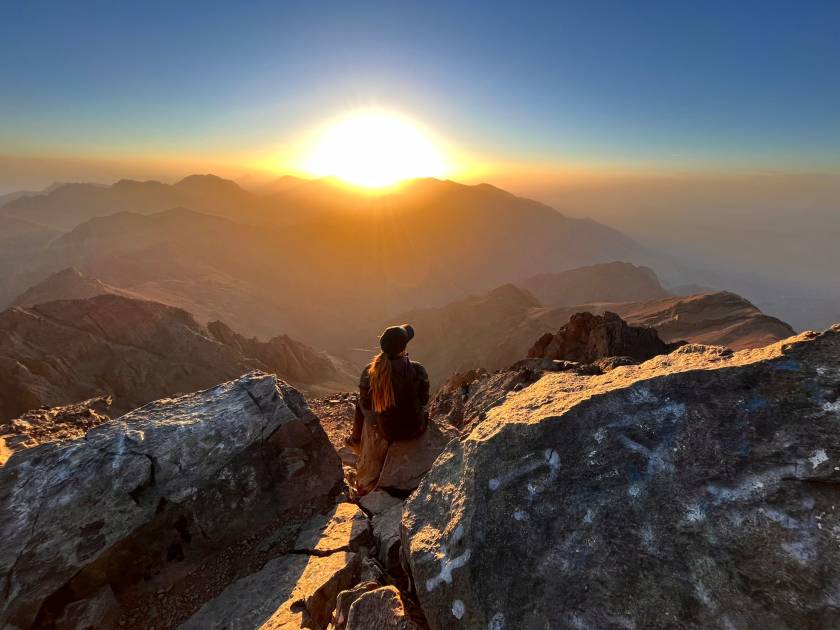
One of the high points (literally) is Tizi Mzik, a mountain pass with an elevation of 2,500m. As you cross it, you’ll have an amazing view of the High Atlas Mountains, including Mount Toubkal. You’ll have to tackle it next time around!
Feeling inspired? Check out our trekking trips in Morocco, including the Summit Mount Toubkal adventure.


